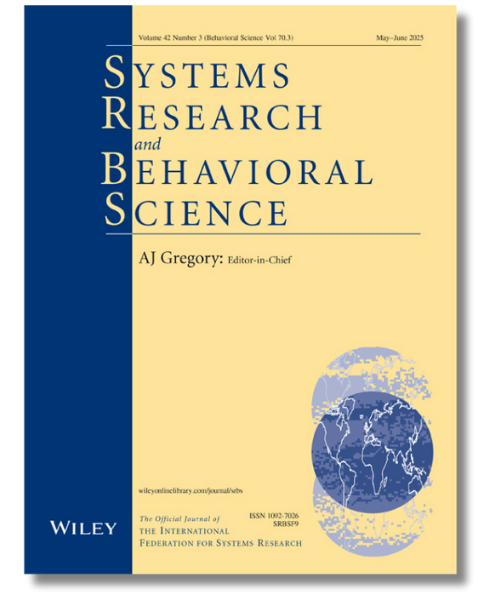A Wiley journal has retracted a paper more than a year after a researcher reported the work was hers and had been stolen by a reviewer for another journal.
As we reported in July, Shafaq Aftab, now a lecturer at the University of Central Punjab in Pakistan, contacted Wiley in September 2024 after discovering a paper published in one of its journals, Systems Research and Behavioral Science (SRBS), was the exact work she submitted to a different journal a year earlier.
The retraction notice, issued October 1, states an investigation found “significant unattributed overlap with an unpublished manuscript” and data the authors provided to the journal were “insufficient to resolve the concerns.” Subsequently, “additional scientific errors were identified in the manuscript,” according to the notice.
In November 2023, Aftab had submitted her manuscript to Information Development (IDV), which rejected the article after two rounds of revisions, Aftab told Retraction Watch. After learning about the SRBS study, Aftab contacted IDV for answers. Stephen Parker, editor of the journal at the time, wrote in a Sept. 22, 2024 email to Aftab that Ghorbanzadeh was a reviewer of both versions of Aftab’s manuscript, and had recommended it be rejected. IDV “cannot be held accountable for this behavior from reviewers,” Parker wrote.
In an October 2 email to us, first author Davood Ghorbanzadeh said Wiley “failed to provide us with solid evidence to substantiate claims of plagiarism.”
Ghorbanzadeh, a social scientist at Islamic Azad University of Tehran North Branch in Iran, would not discuss the retraction further, writing “the issue of article retraction is a strictly professional matter between the authors, the journal, and Wiley Publishing.”
Ghorbanzadeh previously denied plagiarizing Aftab’s work, telling us the accusations were “entirely unfounded.” In an email, Ghorbanzadeh wrote he “did not review Ms. Aftab’s manuscript for [IDV], nor did I suggest its rejection, as has been claimed,” and that his study was “the result of original research conducted with academic integrity.”
The SRBS retraction is Ghorbanzadeh’s third for plagiarism in less than a year. A 2024 study in Emerald’s Journal of Health Organization and Management was retracted in January because “a large portion of this article is taken, without attribution from an earlier, unpublished original work” by other coauthors. The notice also states all coauthors besides Ghorbanzadeh “would like it to be noted that they were not aware of this situation.”
Similarly, the December retraction notice for a paper in Current Psychology states the article “significantly overlaps with a previously published article with a largely different authorship,” with one of the authors claiming “they were unaware of the submission of this article.”
The SRBS retraction notice states that Ghorbanzadeh disagrees with the decision to retract, while coauthors J. F. Espinosa-Cristia and N.S.G. Abdelrasheed agree with the move.
Espinosa-Cristia, an associate professor at Federico Santa Maria Technical University in Chile, told us he could not talk about the case because his university is conducting an internal investigation involving the article retraction.
The other coauthors on the SRBS study did not return our messages seeking comment.
Aftab said she was “very happy” after a long struggle to have the plagiarism acknowledged and rectified.
“The retraction is a strong reminder that those who take credit for someone else’s work will eventually face consequences,” she told us. “My message to the research community is clear: If you try to steal someone’s hard work, be aware that there will be accountability. What one needs in such moments is patience and faith because truth and integrity always prevail.”
Like Retraction Watch? You can make a tax-deductible contribution to support our work, follow us on X or Bluesky, like us on Facebook, follow us on LinkedIn, add us to your RSS reader, or subscribe to our daily digest. If you find a retraction that’s not in our database, you can let us know here. For comments or feedback, email us at [email protected].

This happened to me several years ago. Someone took advantage of me being ill at the time. When I found out, I wrote directly to the Editor-in-Chief, and my name was put on the paper as a contributor! Not coauthor. Hopefully, things are different these days but somehow I doubt it.